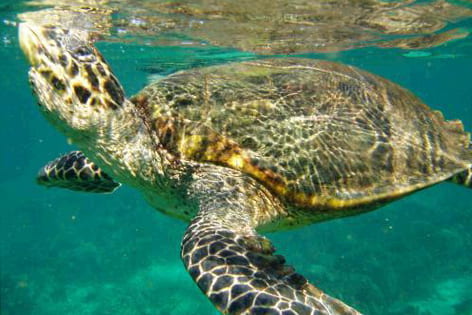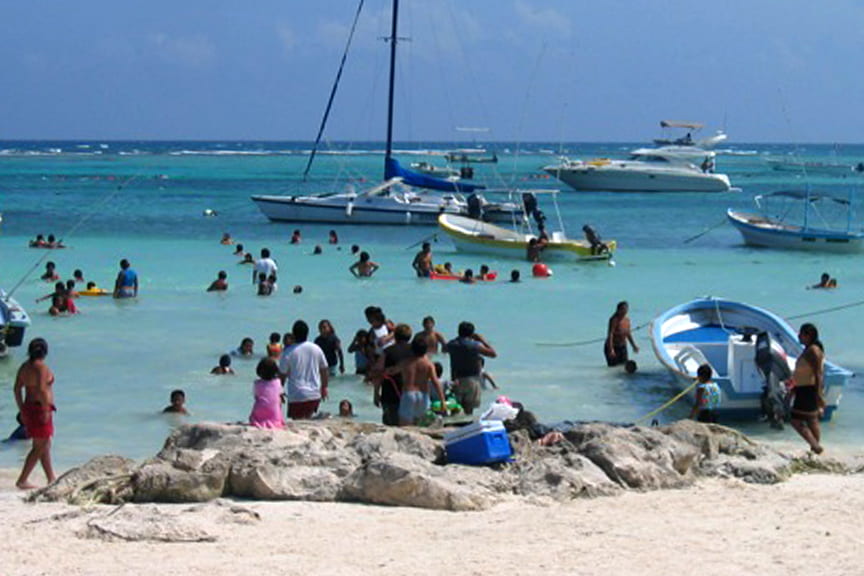Keeping the Mexican coast clear
UCI’s Sharon Stern and colleagues are helping a Mexican coastal village preserve a coral reef by better managing its wastewater.
The fishing village of Akumal sits on the Caribbean coast of Mexico an hour’s drive south of Cancun. Once considered a sleepy, out-of-the-way destination, Akumal — which means “place of the turtles” in Mayan — has become a scuba-diving mecca because of its clear ocean water and abundant coral reef.
Sharon Stern, UC Irvine Program in Public Health senior lecturer and researcher — and an avid scuba diver — has been visiting Akumal for 20 years with her husband, Ron, a UCI mathematician. She has watched the village’s newfound popularity bring a measure of prosperity but also jeopardize the very attributes drawing people there: its pristine waters and reef.
As Akumal increases development to accommodate burgeoning tourism, it faces a wastewater treatment problem. Current methods of processing output from local hotels and condo complexes cannot keep up with demand. This, combined with the area’s porous soil and frequent hard rains, results too often in the accidental discharge of untreated water into the ocean.
“It’s a problem for the people of Akumal and for the coral reef,” says Stern, who studies water pollution and treatment. “Nitrates, phosphates and pathogens in the wastewater discharge encourage algae blooms and other changes in the reef that threaten its existence. As development continues in Akumal, the problem escalates, and if we don’t do anything, one day there may no longer be a coral reef there — destroying a magical place in our environment.”
Stern and her colleagues have worked with Akumal’s leaders to construct wetlands, inland basins lined with rocky substrates and specific plants that emit enough oxygen to encourage bacterial growth. These bacteria, in turn, feed on waste, cleaning the water sufficiently for release into the ocean.
“If a wetland like this is functioning well, it will eliminate 98 percent of the pathogens, nitrates and phosphates in such discharges,” says Stern, who is affiliated with UCI’s Urban Water Research Center.
While helping, Akumal’s wetlands can be wiped out by the area’s torrential summer rains and are not capable of meeting mounting wastewater treatment needs. More must be done, Stern says. Earlier this year, she and public health student Zara Mahmud presented the Akumal city council with a feasibility study on the use of packaged wastewater treatment plants.
Portable and prefabricated, the systems feature an aeration process that promotes explosive growth of waste-eating bacteria. It’s the same method employed for wastewater treatment in the U.S., but these smaller plants can be adapted and enlarged as the amount of wastewater increases with continuing residential and commercial development.
According to Stern, the municipality of Tulum, which has jurisdiction over Akumal, has recognized the need for more sophisticated wastewater treatment and is currently reviewing the proposal for packaged plants.
“The Mexican government is serious about supporting efforts that both encourage tourism and preserve barrier reefs,” Stern says. “Perhaps in one to three years, the water quality off Akumal will be as pure and the sea life as abundant as before humans developed the area. The model used here could be applied to other small villages along the Caribbean coast for sustainable reef protection.”



